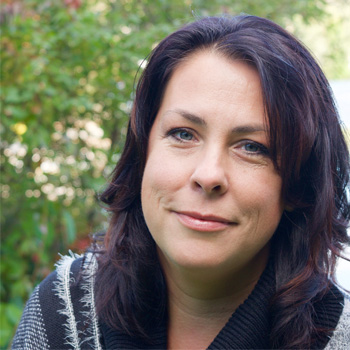Getting your child ready for their first visit to the optometrist

The Canadian Association of Optometrists recommends that children have their first eye exam at around six months of age. But most parents only schedule an eye exam when they think their child has vision problems or is starting school.
How do you know when to take your child to see an optometrist
- If your child often rubs their eyes, has red eyes, or complains about headaches or a burning sensation in their eyes
- If they avoid or complain about sunlight
- If they blink often or squint when reading or looking at the board
- If they sit too close to the TV or hold books too close to their face
- If they have attention problems or difficulty at school
- If they have a lazy eye or if one eye doesn’t seem to be properly aligned
How to prepare your child for their first visit
This is it. You’ve made an appointment and the optometrist is waiting. But how can you best prepare your child for their exam so that they don’t feel uncomfortable or nervous?
While some children will be excited about the exam, others might feel afraid of the unknown and may be reluctant to find themselves in a dark room with a stranger, surrounded by strange equipment. Not to mention eye drops and light shining in their eyes!
Some children may also see eye exams as a test and feel pressure to do well. There are even kids who will try to cheat to avoid glasses at all costs, or who deliberately try to “fail” because they want a nice pair of glasses like little Thomas who was complimented by the teacher last week.
Here are six easy tips to prep for an eye exam, to adapt based on your child’s personality.
1. Tell your child what to expect and explain why an eye exam is useful
The first step is to tell your child what to expect during the exam. To do this, you can do a quick web search for photos and videos that explain the steps involved in an eye exam and the equipment your child will see. If you have an eye exam scheduled for yourself, why not bring your child with you to help familiarize them with the office and the equipment?
2. Make sure your child understands
Sometimes children listen to us without really understanding and get concepts mixed up in their minds. That’s why it’s best to make sure your child has properly understood what you’ve said. A few questions can easily help you do this: “What did you understand from what I explained to you? Why do you think we’re going to the optometrist? What will happen during the exam? Are you going to get glasses?” These questions will help you clarify any points your child may have misunderstood.
3. Check to see how your child is feeling
After you've explained what will happen, find out if your child is worried, if they have questions, or if they have anything special they expect from the appointment. What are they scared of? Do they want glasses? What do they want you to do during the exam? Do they want you to hold their hand?
4. Walk your child through the exam to help alleviate their fears
It may be helpful, particularly for young or anxious children, to engage in some role play before the exam to make it more fun and less scary. You can even act out the experience with dolls, wear silly glasses, or read (or invent) a story about a child’s first trip to the optometrist.
5. Contact your optometrist if necessary
If your child is particularly anxious or has behavioural problems, contact the clinic so that your optometrist and his or her team can prepare and have games and qualified staff available.
6. At the clinic, reassure your child and downplay the situation
If your child seems nervous, stay close and help turn their attention to other things. It can be a good idea to bring some toys while you wait and something comforting like their favourite blanket or stuffed animal. If your child cries, refuses to cooperate, or throws a tantrum, keep your cool and don’t scold. Just wait until they calm down and talk to them gently while rubbing their back. After the appointment is over, a reward or a fun activity like going for ice cream can be a nice way to create a good memory of the event.
Most children have a pleasant first experience at the optometrist and readily understand that it’s important. Lastly, it may be good to remember that eye exams are covered by RAMQ in Quebec until the age of 18.
Should you have any question, make sure to contact your Opto-Réseau optometrist at your nearest clinic.
 | By Nancy Doyon, Special education teacher and family coach, President of SOS Nancy |
- Eye exam
- Kids



